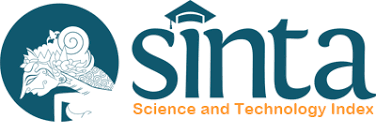Implementation Of The Me-Smile Application At Dharmais Cancer Hospital: An Implementation Research
Keywords:
Waste management, Me-Smile, ImplementationAbstract
Healthcare facilities must monitor waste generation data daily so it can always be tracked as reference for medical waste management. Mostly, each Fasyankes has a scale to record their medical waste generation at their facilities, but this data’s only available within the Fasyankes. The medical waste generation data from Fasyankes still needs to be recapitulated for reporting so that it’s available for policymakers to support the medical waste management from Fasyankes. However, human error significantly affects the data when weighing, because the waste weighing is done twice: first during the disposal and transfer of medical waste from its source to Temporary Disposal Site, and second when the medical waste is collected by the third party who has permission and MoU with the healthcare facility, with different monitoring officers present during the disposal to the TPS and during the collection by the third party. The numerous complaints regarding this matter led the Ministry of Health to collaborate with United Nations Development Programme (UNDP) to develop an application named ME-SMILE in 2023. This application utilizes Internet of Things technology with sensors, microprocessors, and modules. Type of Research: Implementation Research with Research Design: case study, which falls under descriptive analysis research, namely research that is focused on a specific case to be observed and analyzed thoroughly and meticulously.With this research, it is hoped to share experiences and knowledge for the authors, especially in addressing the issues of implementing the Me-Smile application in healthcare facilities.
References
Baghapour, M. A., Shooshtarian, M. R., Javaheri, M. R., Dehghanifard, S., Sefidkar, R., & Nobandegani, A. F. (2018). A computer-based approach for data analyzing in hospital’s health-care waste management sector by developing an index using consensus-based fuzzy multi-criteria group decision-making models. International Journal of Medical Informatics, 118, 5–15.
Fragão-Marques, M., & Ozben, T. (2022). Digital transformation and sustainability in healthcare and clinical laboratories. Clinical Chemistry and Laboratory Medicine (CCLM), 61(4), 627–633.
Gentili, A., Failla, G., Melnyk, A., Puleo, V., Tanna, G. L. Di, Ricciardi, W., & Cascini, F. (2022). The cost-effectiveness of digital health interventions: A systematic review of the literature. Front Public Health, 10.
Hu-Chen, L., Jian-Xin, Y., Chao, L., & meng-Meng, S. (2014). Application of interval 2-tuple linguistic MULTIMOORA method for health-care waste treatment technology evaluation and selection. Waste Management, 34(11), 2355–2364.
Hu-Chen, L., Jing, W., & Ping, L. (2013). Assessment of health-care waste disposal methods using a VIKOR-based fuzzy multi-criteria decision making method. Waste Management, 33(12), 2744–2751.
Hua, S., Hu-Chen, L., Ping, L., & Xue-Guo, X. (2017). An integrated decision making approach for assessing healthcare waste treatment technologies from a multiple stakeholder. Waste Management, 59, 508–517.
Joon, V., Shahrawat, R., & Kapahi, M. (2017). The Emerging Environmental and Public Health Problem of Electronic Waste in India. Journal of Health and Pollution, 7(15), 1–7.
Notoatmodjo, S. (2014). Promosi Kesehatan dan Perilaku Kesehatan. Rineka Cipta.
Pedoman Pengelolaan Limbah Fasilitas Pelayanan Kesehatan Berbasis Digital Bahwa Pengelolaan Limbah Fasyankes Berbasis Digital, Pub. L. No. HK.02.02/C/1389/2024 (2024).
Peraturan Menteri Lingkungan Hidup Dan Kehutanan Nomor P.56/Menlhk/Setjen/2015 Tentang Tata Cara Persyaratan Teknis Pengelolaan Limbah Bahan Berbahaya Dan Beracun Dari Fasilitas Pelayanan Kesehatan (2015).
Sabri, L., & Hastono, S. P. (2014). Statistik Kesehatan. PT. Raja Grafindo Persada.
Schwartz, H., & Jacobs, J. (1979). Qualitative Sociology: A Method to The Madness. free Press.
Sharma, V., Jamwal, A., Agrawal, R., & Pratap, S. (2024). A review on digital transformation in healthcare waste management: Applications, research trends and implications. Waste Management & Research: The Journal for a Sustainable Circular Economy, 1.
Tim Kerja PLR Direktorat Penyehatan Lingkungan. (2023). Panduan Pengguna ME-SMILE (Medical Waste in Sistem Monitoring Imunisasi dan Logstik Berbasis Elektronik). Direktorat Penyehatan Lingkungan, Kemenkes RI.
Xi, C., Lirong, X., Kai, W., & Jianzhen, L. (2023). How does digital governance affect the level of domestic waste separation for rural residents? Empirical evidence from rural areas in Jiangsu Province, China. Front Public Health, 11.

















